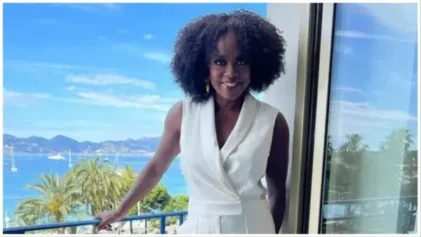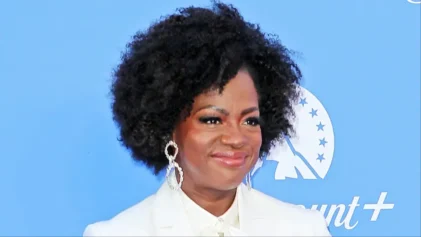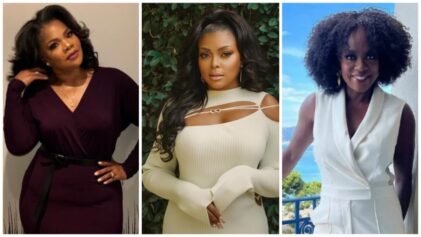Viola Davis wants Hollywood to take a cue from her new film “Widows” and cast more Black women in leading roles opposite white men who aren’t their overseer.
The “How to Get Away with Murder” actress explained how much progress still needs to be made in Tinseltown when it comes to the dynamics of Black women and white men on screen.
While describing a scene from her heist thriller, which is in theaters Nov. 16, Davis explained it involves her, a natural-haired, dark-skinned, 53-year-old Black woman, kissing Liam Neeson, whom she says “America would consider to be a hunk.” They share a “sexualized kiss” in bed and Davis explains there’s something novel about the display.
“He’s not my slave owner, I’m not a prostitute, it’s not trying to make any social or political statements, we simply are a couple in love,” she explains to BBC. “And what struck me about that in the narrative is that I’ve never seen it before. And you’re not going to see it this year, you’re not going to see it next year, you’re not going to see it the year after that. And most people who look at it, most critics … will probably not even acknowledge that as anything novel. They’ll say, ‘OK, so what? It’s not making a political statement. So, if it’s not making anything then why isn’t it done?
“If we are indeed committed to inclusion and diversity … then why can’t you consider a character that maybe is not ethnically specific, why can’t you consider someone like me for it?” she adds.
In “Widows,” Davis plays a woman whose husband dies with his crew during an attempted armed robbery. She winds up teaming with three other women — who also were left widowed after the police shootout — to carry out the heist her husband set out to do. It’s based on the 1983 ITV show of the same name.
In response to Davis’ remarks, fans began chatting about their own thoughts.
“This about profound polarity. This about absolute power. This about inheritable privilege. Embracing another in truth requires an acknowledgment of the truth and indeed its absence. We are at a crossroads. To interface at our highest, we must feel unapologetically worthy.”
“What’s the distinction between diversity and representation? Viola is talking about ‘diversity’ in the bedroom as a triumph for dark complexioned Black women.”
“Viola will always and I mean ALWAYS keep it real. And I can’t emphasize how much it means to me.”


